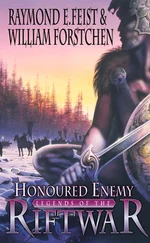“Thought you were an experienced spelunker?” Cooper said.
Their dual flashlight beams remained trained on the base of the stairwell.
“I am.”
“So?”
“You’re the canary,” Borrego said, “aren’t you?”
Aw, what the hell, Cooper thought, and started down. He turned so he could keep an eye on Borrego as he went. He didn’t do it for any reason other than instinct-you just never knew. Borrego started down behind him cautiously, some of that spring he’d shown along the way missing from his step.
In the passageway, some of the stones and beams that held the walls together had broken apart and fallen. There were mounds of dirt where the earth had caved in, but most of the cave-ins appeared to have happened prior to the raid-tire tracks, footprints, and scrape marks evident on the mounds of dirt too.
Protrusions from the wall were visible at shoulder height every ten steps or so, on alternating sides; looking more closely at them, Cooper realized they were there to hold torches or lanterns. As with the rest of the architecture, they didn’t seem particularly old.
The hall turned to the right, and Cooper first saw darkness, and then, as he rotated the flashlight beam into the blackness-vastness. Borrego came up alongside him, and between their two flashlights they were able to partially illuminate the room.
It was a massive, stone-walled chamber, with a number of benches built in rows along the floor. The benches were made of the same dark hardwood as the structures on the rain forest floor. Along the two longest walls, rectangular cavities had been carved out at regular intervals, the flashlight beams revealing the cavities to be empty. Because of the way the spiderwebs, dust, and dirt were patterned within the cavities, Cooper caught the distinct impression of something recently taken.
A similar emptiness of grime and dust showed itself under their beams in a rectangular shape along the shorter back wall of the room; Cooper thought immediately of the gold tapestry he’d seen on display in Cap’n Roy’s Marine Base Barn.
“Looks to me,” Borrego rumbled from Cooper’s left, “like a church.”
There were a pair of doorways, one on each side of the place where the tapestry had hung. Cooper took one of the openings at the back of the room and Borrego the other. They wound up in the same room-this one much wider, with a shallower ceiling. As he watched his flashlight beam illuminate the features of this particular chamber, Cooper felt an icy tingle inch up his spine.
“Or a funeral home,” he said.
Stretching away from them, in multiple rows, stood a sea of caskets. These too were made of the same hardwood. They looked more weathered than the timbers used to build the shacks-older, Cooper thought.
“This is their cemetery,” he thought out loud.
“So it seems,” Borrego said.
Most of the caskets appeared to have been opened and re-closed; their lids were mostly a little bit askew but remained on the coffins despite the disturbance they’d endured. There were cavities built into the walls of this room just as in the other, and these-along with the boxes beside the coffins, Cooper and Borrego examining a few of them-were also empty.
“Your boys did a pretty thorough job of cleaning house,” Cooper said.
“Told you they were good.”
“Not that this comes as any great surprise,” Cooper said, “but I’m not exactly feeling like Sherlock Holmes here. Everybody’s dead-okay-that makes the place no different from every other Mayan ruin, except it’s pretty obvious whatever killed these people killed them quickly. Then we’ve got the thorough cleaning job by your tomb raiders-other than these evident facts, we ain’t exactly stumbling across an explanation behind the multi-continental snuff-out currently being conducted by persons unknown.”
Borrego’s flashlight beam moved bumpily around the walls of the room; Cooper took a look at him and saw that the Polar Bear had entered into a massive, slow, ecstatic kind of stretch. As though to emphasize the satisfaction the full-body stretch gave him, he opened his mouth and undertook a wide, trembling yawn.
When he’d finished, Borrego said, “Guess you could see it this way: either it’s got something to do with the whole village being dead, or this trip was one big waste of time. Other than good exercise and great lobster, of course. Let’s head up top-see if Jesus has the tents up.”
Cooper shrugged, said he didn’t see why not, and followed the Polar Bear up and out.
They had a fire going, not to keep warm-no need in the tropical heat-but to brew some coffee. The changing sounds of the forest had awakened Cooper just before dawn.
On one of the “spokes” they’d traversed the night before, he’d encountered a narrow river. It was on the outskirts of the village, to the north. This morning, once he’d arisen, he found the aluminum pot Madrid had used to cook some condensed hiker’s food, and made his way to the river to fill it. He got the fire going by kicking its embers around, boiled the water in the pot, took a coffee filter and pouch of grounds from his backpack and custom-filtered some brew into the cups Madrid had packed into each of their backpacks.
Borrego and Madrid came awake the minute the smell of coffee hit the jungle air.
Food, Cooper thought-it’s all about food with these guys.
Once they’d found three suitably distant bushes in which to relieve themselves, the trio of explorers sat around the fire and worked on putting away the coffee.
“You notice the shreds of fabric on some of the bones?” Cooper said.
“Yep,” Borrego grumbled.
“Your tomb raider was right. Everybody here died. But he said it could have been a thousand years ago when they caught the curse, if that’s what it was. I’m fairly certain that’s not possible.”
“The artifacts certainly aren’t that old.”
Cooper nodded, electing to ignore the fact that Borrego already knew this and hadn’t said anything about it along the way.
“Correct,” he said, “a hundred and fifty years old at most, according to an archaeologist I asked. But the presence of the fabric in the homes would indicate the citizens here died a lot more recently than that.”
“You’re saying the clothes on the skeletons,” Borrego said, sipping from his cup, “would have rotted faster than that.”
“I’m not exactly up to speed on the latest forensics theories, but no way do fabrics like those stick around a rain forest more than twenty-five years.”
Borrego nodded.
“Definitely not a hundred,” he said, “or even fifty.”
“So everybody died here. They died quickly, and more or less all at once-less than fifty years ago.”
Borrego nodded again and took another sip of coffee. Madrid too sipped.
“Maybe that’s what the snuffer-outers don’t want anybody finding out,” Cooper said.
“Could have been something else,” Borrego said. “Like tribal warfare, say.”
“Could have.”
“Or civil war within the tribe-two factions battling to the death. Hell,” Borrego said, “could be they all listened to their crazy leader and downed some arsenic-laced indigenous version of Kool-Aid. But given the other factors that brought you into my office on that switching train, I’d say your theory is in the lead.”
Cooper dumped the gritty remainder of his coffee on the fire and stood.
“Gonna look around some more,” he said.
Borrego looked up at him from his seat beside the fire. He didn’t have to look very high despite Cooper’s relatively tall frame-six-nine goes a long way, Cooper thought, even when you’re sitting down.
“Longer spokes?” Borrego said.
Читать дальше
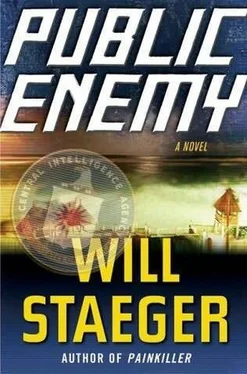
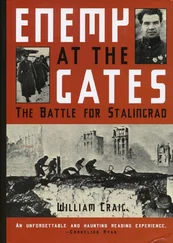

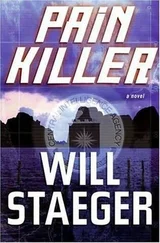
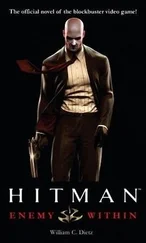
![Томас Гарди - Джуд неудачник [Литрес, Public Domain]](/books/437392/tomas-gardi-dzhud-neudachnik-litres-public-domain-thumb.webp)





